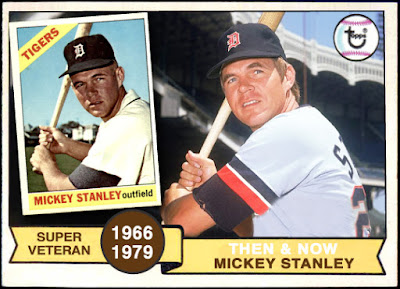 |
| Katy Perry |
And now we're talking about the esteemed Katy Perry. I'm certain she and her partners have a sense of propriety about her music. How can I be so sure? How do we peel this banana? Well, if "Dark Horse" was a case of song theft calling for an onerous verdict, why would such an involved legal proceeding even be needed? High-priced (a given) lawyers and testifying experts: they get into the thickets or minutiae so far that a juror might well lose all grasp of any song in question.
Remember the famous judge's quote about pornography: "I can't define it but I know it when I see it?" It's apropos here because if an artist actually "stole" a song, wouldn't it be pretty self-evident? We wouldn't have to explore all the various song components like the "beat" or background pattern of notes. The beat? Hell's bells, isn't that a road we don't need to go down? Remember the old "American Bandstand" show where the song evaluators were not allowed to simply say "I like the beat?"
Are we going to allow someone to copyright the blues chord progression? Remember how movies weren't allowed to use the "Happy Birthday" song for a long time because of IP (intellectual property) issues? A lot of this stuff ends up in the legal weeds and does nothing for the craft or passion of penning creative works. It just fattens the wallets of lawyers.
Prima facie cases of song-stealing must surely be pursued.
Many in the courtroom were surprised at the Katy Perry verdict. Many thought that only a limited number of parties might be found culpable. Most likely this wouldn't include Perry herself.
She claims to never having heard the predecessor song before, and I readily believe her. Might someone else in her organization have heard it? Possibly. Plus, let's remember that music professionals get song ideas in the form of "pitched" material from all over. These come in the form of "demos." Artists at the top aren't going to be aware of the background with such demos. They ought to exercise vigilance of course.
Principle vs. practicality (or CYA)
A panel on the "Morning Joe" TV program once wondered why artists often seem to capitulate too easily when they're accused of "stealing" or "borrowing." They'll "settle" and allow the other artist to share in song ownership (i.e. the money). The panel quoted one artist saying at one point in a dispute that his case for innocence was rock-ribbed, thus he exuded confidence. The panel was surprised that this artist then "caved."
The Perry case sheds light on why lawyers advise, as they always do, on what is in the client's best interest. No artist wants to risk having the stain of a "theft" episode in their background.
I take the media to task a little. I've seen headlines saying that Perry was guilty of "plagiarizing" a song. I think a better understanding is this: a jury found rightly or wrongly - I imply the latter - that two songs sounded too much alike. It is very easy for song artists to inadvertently create works that seem similar from a variety of standpoints. Seeming similar is not prima facie theft. If it were slam-dunk theft, the two sides wouldn't put an army of lawyers and experts to work.
Back in the early 1980s I attended a songwriting seminar at Moorhead State University (MN). The panel of three included a music industry lawyer. He projected humor as he talked about how the two sides square off in a dispute like this, one side arguing "it's obvious this is a case of song theft" and the other maintaining "there's no similarity at all."
The headlines that have Perry's name next to words like "plagiarizing" represent a major career hurdle for her now. Can she shake it? We all remember George Harrison's experience with "My Sweet Lord." I would almost argue that his case was prima facie, my point being that it wasn't just one portion of the melody that was similar, it was two. Sorry George. However, I was inclined to believe Harrison's argument that it was subliminal and thus non-intentional copying. He had heard the other song before.
Perry and her people were accused of borrowing from a 2009 Christian rap song. (A what?) All of this music is well beyond my taste, like it's from another planet. People my age all remember when rap started taking over MTV. Remember when music videos were MTV's stock in trade? Put it in a museum.
Marcus Gray took the action against Perry. The accusation is that Perry's "Dark Horse" was too much like "Joyful Noise." There is nothing joyful in cases like this.
Let's not inhibit
The legal community must walk a very fine line on IP matters. And that is because we don't want people who have a love of the songwriting craft to be scared away from the craft, by fear of this type of legal action, growing out of a case where the alleged "borrowing," "lifting" or "plagiarism" - we must grope for words - was likely inadvertent.
And, a jury of dumbasses isn't going to realize how easy it is to create a song which later will be found to have "similarities" with a previous work. The dumbass jury will be asked to listen to two songs and decide: Are they alike? To what extent are they alike? Is it "theft?" The jury should be asked: Do you think it's willful theft? Ah, it's impossible to know, right? But, we want aspiring songwriters to continue loving their craft and to share with us, rather than to be discouraged and peel off.
Gray used the stage name "Flame." Not my world, sorry. The case now goes to a penalty phase. Many observers in the courtroom were stunned at how unequivocal the judgment of the dumbass jury was. "Yep these two songs sound similar." Well, they were bound to sound similar if a legal case had plodded this far. At what point does "similar" cross the line? Most certainly not in this case, I'd conclude after going through the ordeal of listening to both songs, neither of which is my cup of tea.
Perry's attorneys argued "that the song sections in question represent the kind of simple musical elements that if found to be subject to copyright, would hurt music and all songwriters." I agree fully.
The dumbass jury of six women and three men cried foul over the "bumping beat and riff" that suggested similarities. A "bumping beat?" Heaven help us all. Many observers are undoubtedly shaking their heads.
The co-authors of "Dark Horse" testified that none of them had heard the previous song or even been aware of Gray before the lawsuit. I believe this, because why would they want to put themselves at risk?
Perry will have to spend the rest of her career explaining "her side" on this.
Gray's people "reached" when asserting that Perry had begun her career as a Christian artist. I remember one day at the old Sun Tribune in Morris where I spent many years, we turned on the radio just for background, not seeking any particular format or genre. Jim Morrison said anything was fine as long as it wasn't a Christian music station. "Anything but that," he said. To that I say amen and hallelujah.
Didn't George Harrison have a song called "Dark Horse?" As a footnote, let me share that song titles have no IP protection. I once wrote a song called "So Many People" because this had been a title of a Bill Chase number. I just liked it. My song was philosophical in the manner of early Blood, Sweat and Tears. It's dated. Nothing I would pay to have recorded today, although I think the poetry is cool.
- Brian Williams - morris mn minnesota - bwilly73@yahoo.com












